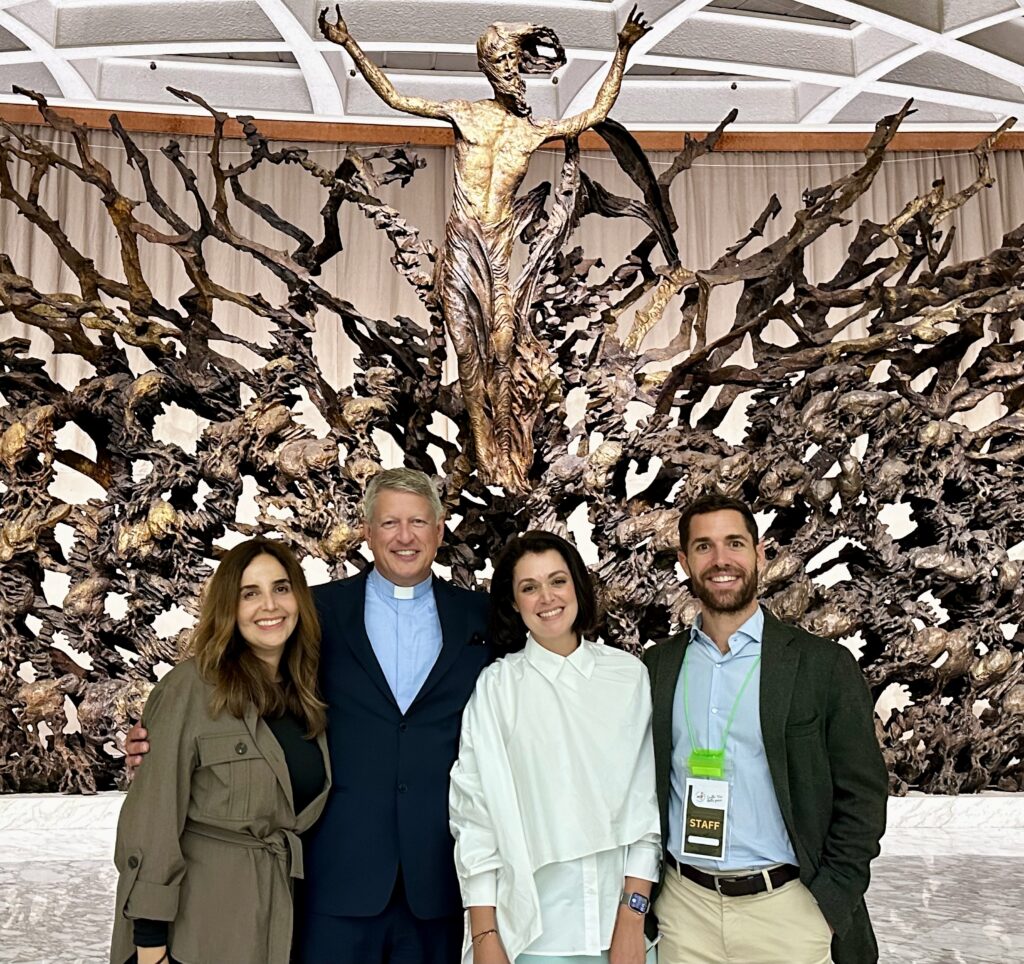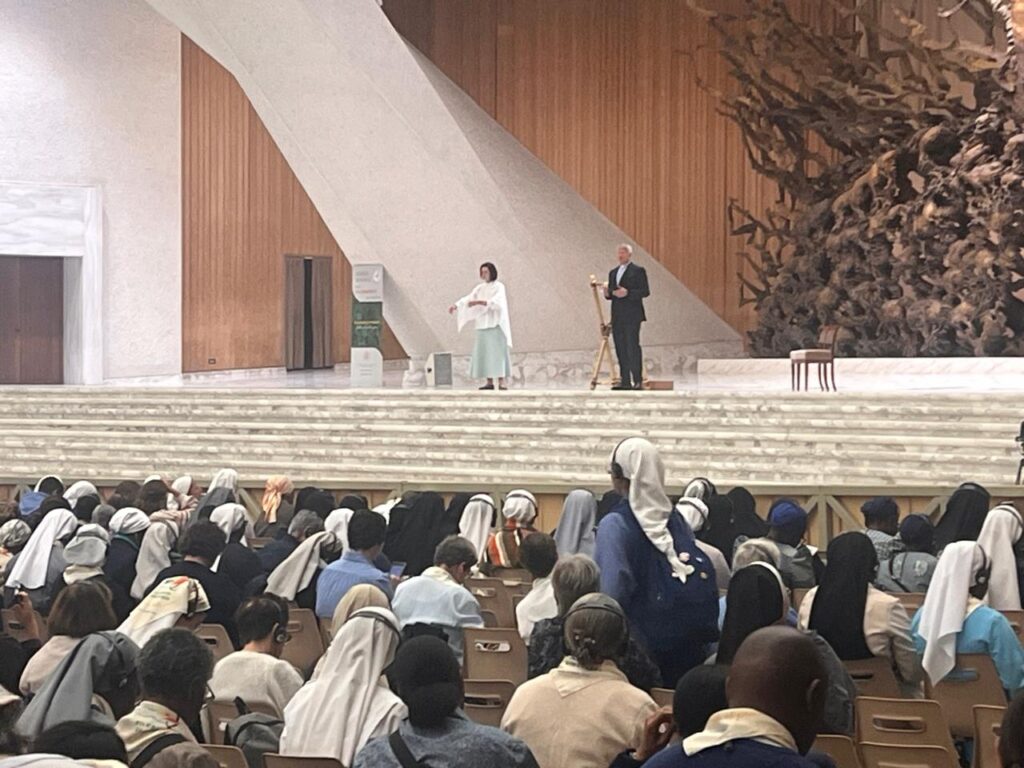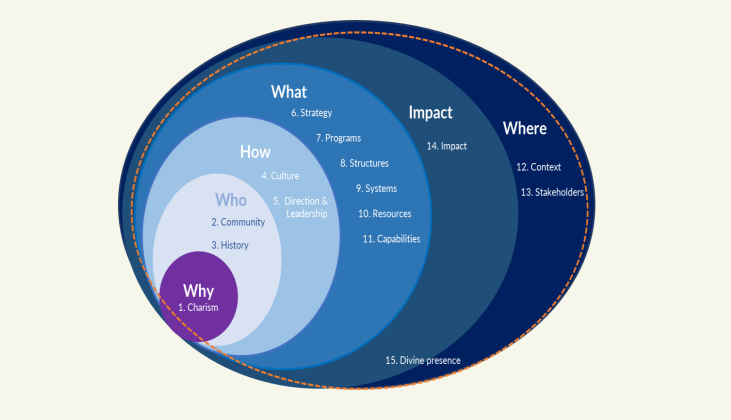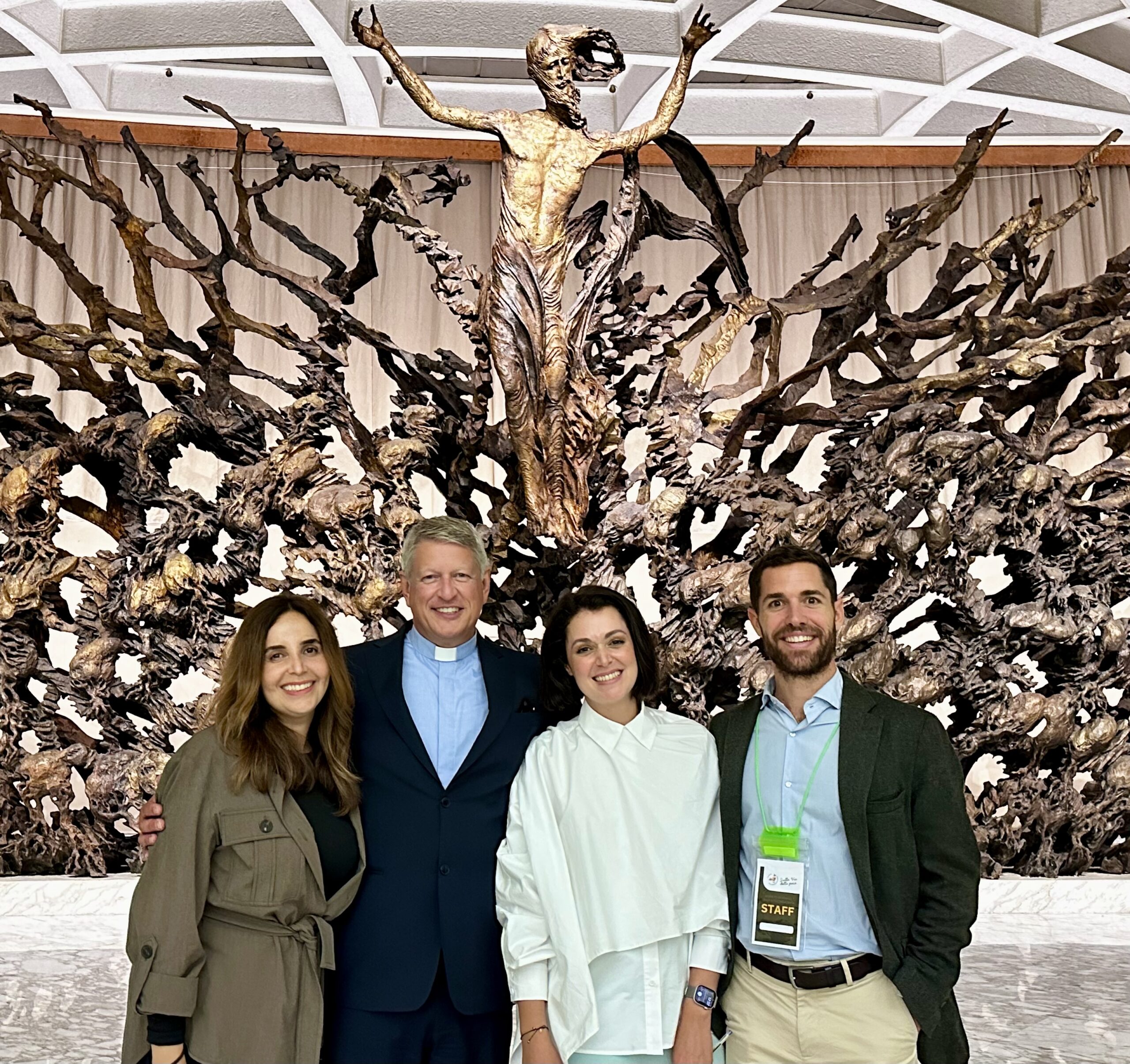As the Jubilee of Faith and Hope for Consecrated Life drew to a close, its final day in Rome’s Paul VI Hall focused on one of the world’s most urgent calls: the call to peace. Following a moving day centered on Hope, more than 3,000 consecrated women and men gathered to explore what it means to be peacemakers in an age of global conflict.

The day began with a Eucharistic celebration, setting a contemplative tone for what would follow. In the morning, Sr. Teresa Maya, CCVI, former president of the Leadership Conference of Women Religious (LCWR), offered a powerful reflection on the vocation of hope and the courage it takes to keep faith alive amid uncertainty.
Her message prepared hearts and minds for the afternoon’s practical workshop led by the Discerning Leadership team – a session that intended to translate joint reflection into skill-building and communal insight.
The Workshop: Building Peace Through and Beyond Conflict
The afternoon was led by Fr. David McCallum, SJ and María Guerrero, who guided participants through an engaging and transformative workshop that reframed conflict as a space where the Holy Spirit is also present, and each of us can be used as instruments for bringing about healing, reconciliation, and justice.Designed around three interrelated levels of growth – personal, interpersonal, and systemic – the workshop invited participants to deepen their awareness of how peace begins within and radiates outward. The aim was not only to teach tools for managing conflict but to foster a culture of discernment, listening, and transformation that can shape communities and institutions alike.
A Journey Toward Right Relationship
The session began with a reflection on Jesus’ own orientation to conflict: his nonviolent resistance, direct confrontation, and symbolic action that transformed the realities of his time. In this light, the call to peace is not a call to passivity, but to conversion: from coercion to communion, from unilateral power to mutual empowerment.

From Conflict to Communion
Drawing on Ignatian spirituality and contemporary leadership theory, the session proposed that conflict, while often painful, can be a passage toward true peace – a peace grounded in “right relationship” and real justice. Participants were encouraged to view the ‘other’ not as an obstacle, but as a companion on the creative path forward.
The team explored the diversity of conflict styles and the risks of misunderstanding differences as a threat rather than a gift. In dialogue with the Church’s ongoing journey toward synodality, they invited participants to see diversity not as a challenge to be controlled, but as a sacred space for mutual learning and shared power. And in fact, each conflict style has its time and place, where it can be effectively deployed, depending on the outcomes we seek to achieve, and the mission we serve.
As the team noted, inner peace, that is the fruit of grace and integration, is essential to authentic peacemaking. Without reconciling our own inner fragmentation, we risk projecting division onto others and the systems we inhabit.
Learning to Engage, Not Avoid
Using practical frameworks such as the Thomas-Kilmann Instrument (TKI) and the Five Parts of Speech for Hard Conversations, the workshop encouraged participants to develop courage, resilience, and skill in engaging conflict rather than avoiding it. The facilitators emphasized the dangers of denial, avoidance, and control, contrasting them with the life-giving possibilities of discerned and skillful engagement.
The workshop also focused on the Five Ways of Listening, as well as the importance of practicing both advocating our point of view and inquiring as to the perspective of others. These ways of understanding how to enhance our listening skills and develop our ability to both lead and follow others made a deep impression on participants, who applied them to personal cases within the contexts of their relationships.
Through guided exercises, in-pair reflection, and moments of silent prayer, participants were invited to consider what they might need to surrender in order to move forward and live as disciples of Christ, who himself did not shy away from conflict, or seek “peace at all costs.”
As the event wrapped up, Sandra Chaoul introduced the audience to the prayer guide she prepared for the pilgrimage from the Vatican to the Basilica of Paul Outside the Walls, where the closing event of the Jubilee took place. We concluded by singing Dona Nobis Pacem in three canons, led by Maria Guerrero- a symbolic and moving expression of how we can find and build harmony amongst our differences.
Becoming one body in Christ is a lifelong journey. It begins within each heart and extends outward, shaping communities, cultures, and systems into instruments of peace. And it requires inner conversion, discernment, and practical skills that we can all learn and practice.
If you want to access the workshop materials, click here.




